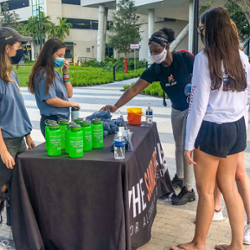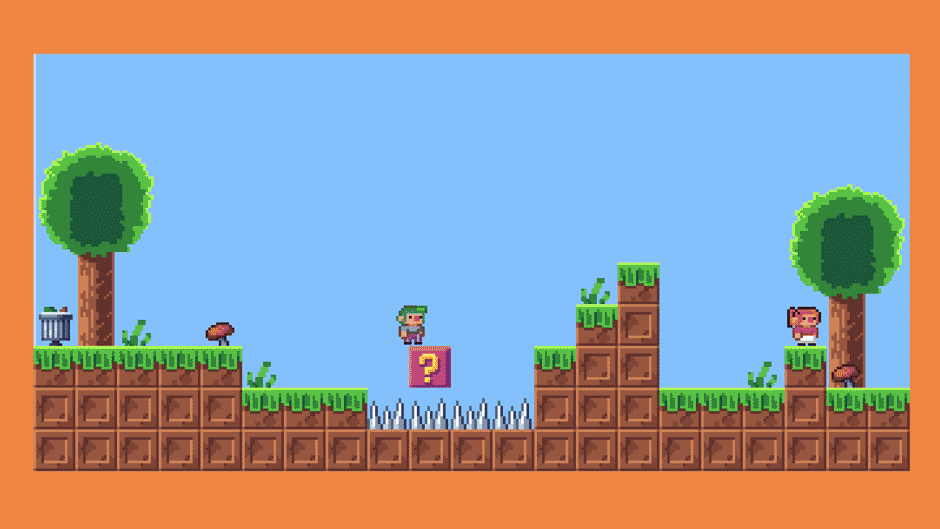For many students, arriving on a college campus may be their first time in the presence of alcohol and other drugs. Through the Sandler Center for Alcohol and Other Drug Education, a team of peer educators works to educate their classmates on the dangers of excessive drinking and how it can negatively impact their college experience.
National Collegiate Alcohol Awareness Week (NCAAW), which took place from Oct. 18-24, aims to improve awareness of issues posed by excessive drinking among college students. At the Sandler Center, peer educators hosted not just one week, but a month of programs to connect with students about the dangers of excessive drinking and to reinforce personal responsibility and respect for current state laws and school policies pertaining to the consumption of alcoholic beverages.
The month, filled with events themed after nostalgic animated television shows, provided virtual opportunities that allowed students to connect with peer educators in engaging and educational platforms. Katy Haller, a public health graduate assistant for the Sandler Center, shared that this month has had a measurable impact on students, especially first-year students.
“Our data shows that we’re working overwhelmingly with students who are under 21, so first- and second-year students. With over 700 participants, and a week left of programming to go, I think it’s a really exciting, high-pressure opportunity to have this conversation with younger students,” said Haller.
The interactive nature of their virtual programs, Katy added, impacted students’ interest in the programs. Events like ”SpongeBob” and “Scooby-Do” virtual quizzes, a “Tom and Jerry” maze game, and even a “Phineas and Ferb” video game coded by peer educator Julie Erhardt, virtually educated students on the dangers of alcohol while also highlighting on-campus resources and safety measures in a relatable and conversational format.
Ehardt, a junior in business technology and legal studies, put her knowledge of coding to use by creating a video game for students to explore the mental and physical health effects of alcohol.
“Given the fact that our programs are virtual, we’ve had to creatively adapt to reach students effectively. I tried to do something different, and overall creating my video game about the physical health effects of alcohol made it more relevant to students,” Ehardt said. “Now more than ever, people are paying attention to their physical health, so I think it makes the topic of my video game even more relevant.”

To supplement their online programs, peer educators also hosted pop-up tabling events on campus throughout October.
As a peer educator, students work to bridge the gap between students and staff surrounding issues related to drug and alcohol use. Their goal is to engage with students in meaningful programming, often providing the kind of interaction and camaraderie a professional staff member may find difficult to achieve. Kirra Peery, a junior studying marketing and real estate, experienced first-hand the impact of Sandler Center peer educators as a first-year student, inspiring her to become one herself.
“I love engaging with students and making sure that my peers are being safe and have all the information they need to make good choices. The role gives me a chance to assess what I see happening on campus, as a student, and apply it to my programs to make them more intentional,” Peery said.
Students are encouraged to stay updated with the Sandler Center’s programs through their Instagram, where the peer educators share information and event details weekly.
For more information on how to get involved with the Sandler Center or to become a peer educator, visit miami.edu/sandler.

